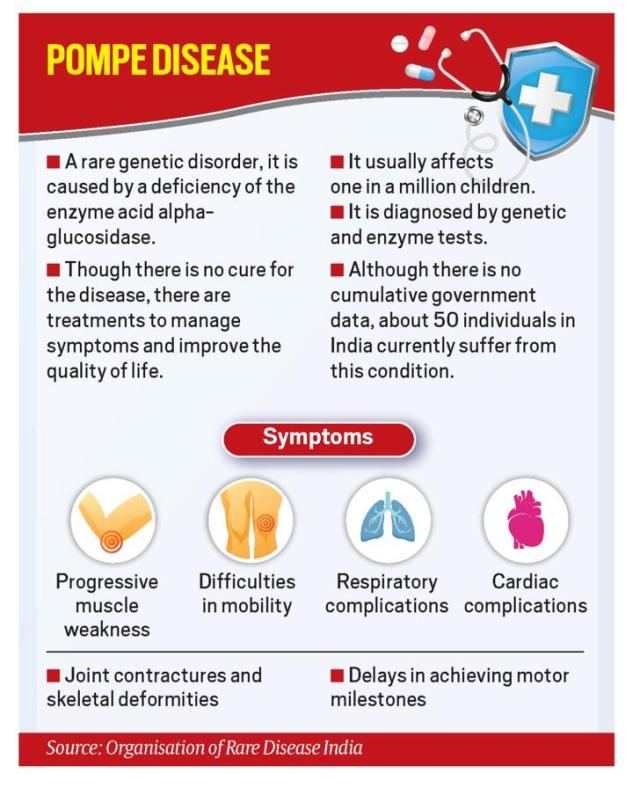ForumIAS announcing GS Foundation Program for UPSC CSE 2025-26 from 19 April. Click Here for more information.
ForumIAS Answer Writing Focus Group (AWFG) for Mains 2024 commencing from 24th June 2024. The Entrance Test for the program will be held on 28th April 2024 at 9 AM. To know more about the program visit: https://forumias.com/blog/awfg2024
Source: The post is based on the article “Pompe Disease:India’s first patient of this disease passes away” published in “Indian Express” on 8th December 2023
Why in the News?
Nidhi Shirol, India’s first Pompe disease patient has passed away at the age of 24 years.
What is Pompe Disease?

| Specifications | Details |
| What is it | 1) It is a rare genetic disorder caused by a deficiency of the enzyme acid alpha glucosidase (GAA). 2) This enzyme is crucial for breaking down glycogen into glucose within the lysosomes of cells. |
| Also known as | Glycogen Storage Disease Type II |
| Types | The symptoms of disease vary depending on the type and severity of the disease. The two main types are: 1) Infantile-onset Pompe disease: This is the most severe form of the disease and appears in infancy or early childhood. Symptoms include muscle weakness, respiratory problems, heart failure and an enlarged liver. 2) Late-onset Pompe disease: This is a milder form of the disease that can appear in childhood, adolescence or adulthood. Symptoms can include muscle weakness, fatigue, pain and difficulty breathing. |
| Diagnosis | Enzyme tests, often performed on blood or skin cells, provide crucial insights into GAA deficiency. Genetic analysis confirms the presence of specific mutations associated with Pompe Disease. |
| Prevalence of disease | Its prevalence estimates range from 1 in 40,000 to 1 in 300,000 births. It occurs across diverse ethnicities and populations. |
| Treatment | 1) There is currently no cure for Pompe disease. But there are treatment options available to manage symptoms and improve the patient’s quality of life. 2) Enzyme Replacement Therapy (ERT) is a standard treatment. It involves the infusion of the missing enzyme to alleviate glycogen buildup. |
UPSC Syllabus: Diseases in News




